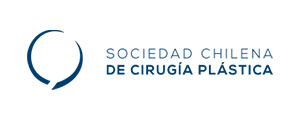VOLVER
IMCAS Americas 2025
IMCAS Americas 2025
Programa
020, 021
Seguridad anatómica: abdomen, músculos, injerto de grasa (en colaboración con SCCP)
Sala: Room 3
Fecha: viernes 11 abril 2025 de 16:30 a 18:30
Formato: SESIÓN ENFOCADA > presentación que cubre una temática principal del congreso
Fecha: viernes 11 abril 2025 de 16:30 a 18:30
Formato: SESIÓN ENFOCADA > presentación que cubre una temática principal del congreso
Las presentaciones
| Horas | Oradores | Título de la presentación | Resumen | Número |
| 16:30 | Cadáver: abdomen y músculos | 143766 | ||
| 16:45 | Esculpiendo la esencia: anatomía por ultrasonido en demostración en vivo | 148236 | ||
| 16:45 | Comentarista | 148011 | ||
| 16:45 | Comentarista | 148242 | ||
| 16:45 | Comentarista | 143771 | ||
| 17:00 | Estructura corporal: redefiniendo la forma femenina | 143767 | ||
| 17:10 | Discusión | 143769 | ||
| 17:20 | Plicatura del escudo anatómico | 143770 | ||
| 17:32 | Perfil genético en intervenciones para la pérdida de peso: avanzando soluciones personalizadas para resultados de salud y estéticos | Ver | 143772 | |
| 17:44 | Técnica M.I.R.E.L.A (lipoabdominoplastia endoscópica robótica mínimamente invasiva) en el tratamiento estético de contorno corporal | Ver | 143773 | |
| 17:56 | Técnica de mini-abdominoplastia | 148243 | ||
| 18:08 | Sesión de preguntas y respuestas | 143774 | ||
















